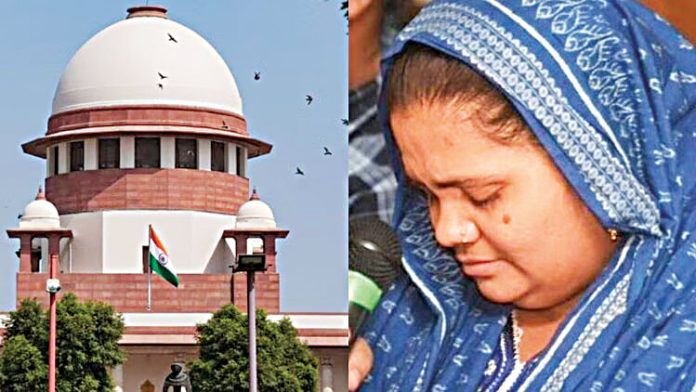In a landmark decision, the Supreme Court has invalidated the remission granted to eleven convicts in the infamous Bilkis Bano case, citing the Gujarat Government's lack of authority to grant such reprieves. The apex court asserted that Gujarat had overstepped its jurisdiction, infringing on the remission powers rightfully belonging to Maharashtra. The ruling not only quashes the convicts' appeal to safeguard their liberty but also mandates their return to prison within two weeks.
The Supreme Court, in rejecting the convicts' plea, emphasized the imperative of upholding the rule of law, declaring that justice can only be served by reinstating their imprisonment. Justices held that the respondents had forfeited their right to liberty upon conviction, asserting that their return to jail was justified.
Justice Nagrathna, the author of the judgment, underscored the fundamental respect owed to women, irrespective of their societal status, faith, or creed, raising crucial questions about the permissibility of remission in heinous crimes against women.
She wrote, “A woman deserves respect howsoever high or low she may otherwise be considered in society or to whatever faith she may follow or whatever creed she may belong to. Can heinous crimes against women permit remission? These are the issue which arise.”
The Bilkis Bano verdict sets a precedent, challenging the appropriateness of the Gujarat Government as the remission-granting authority. This prompts a broader debate on the remission of sentences, emphasizing the need for a more comprehensive examination of applicable laws. The decision signals a departure from an indefensible precedent, calling for a reevaluation of the powers vested in the appropriate government, specifically in the context of remission.
Background:
The case traces back to the gang rape of Bilkis Bano during the 2002 post-Godhra communal riots in Gujarat. Subsequently, a Mumbai sessions court convicted the accused, and the Bombay High Court upheld the convictions in 2017. The Supreme Court directed the Gujarat government to compensate Bano and provide her with housing and employment.
After nearly 15 years in jail, one convict sought remission through the Gujarat High Court, leading to a jurisdictional dispute. It held that the appropriate government to take a decision with respect to his remission was the Maharashtra government, and not the one in Gujarat. But, when the matter travelled in appeal to the Supreme court, it held that the remission application had to be decided by the Gujarat government as the offence took place in the state. Gujarat government released the convicts in 2022 prematurely causing public outcry

The BuckStopper, run by a group of seasoned journalists, holds the powerful accountable. The buck stops with them, as they cannot shrug off their official responsibilities.



